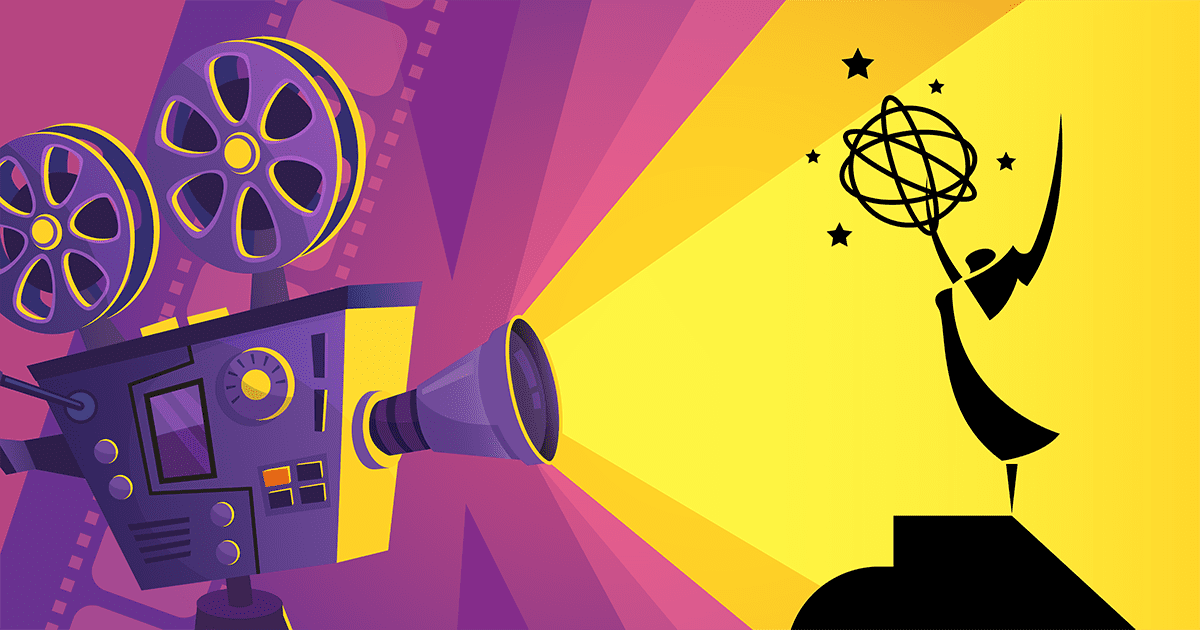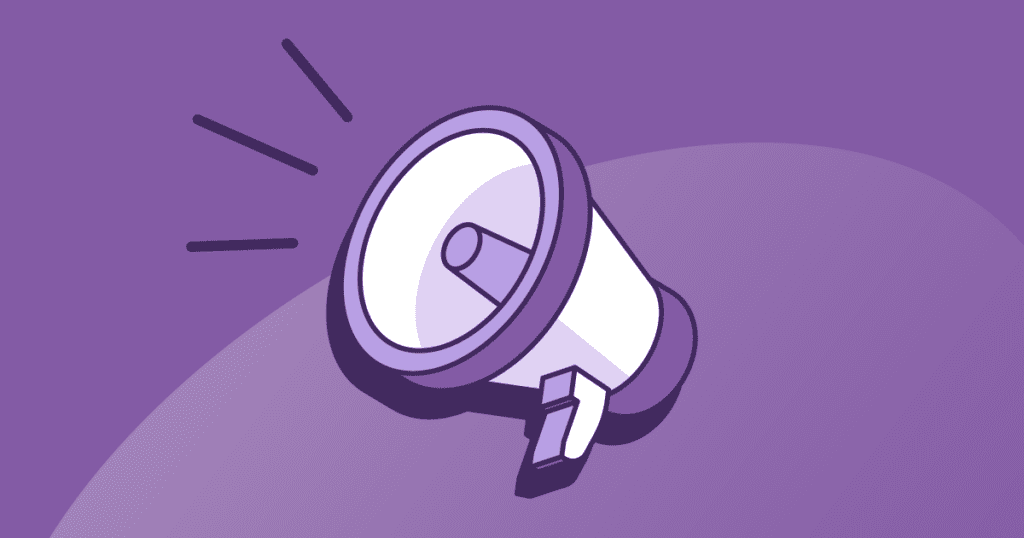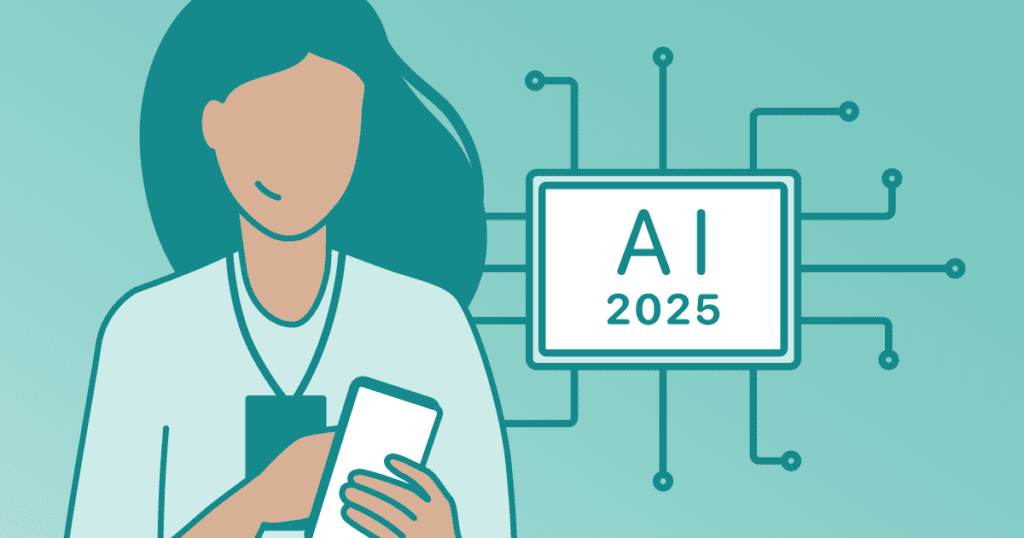The virtual Emmys were all live. 130 cameras worldwide. With a DJ. Cameos. And a complex digital stage. It was a bit of a production smorgasbord. But we think they had a lot of cool techniques for keeping things entertaining. Some were super easy. Some more advanced. But all doable. Here are our notes on the best Emmy-magic for your next event.
The easy stuff (with tons of entertainment value)
Memories, music, and cameos
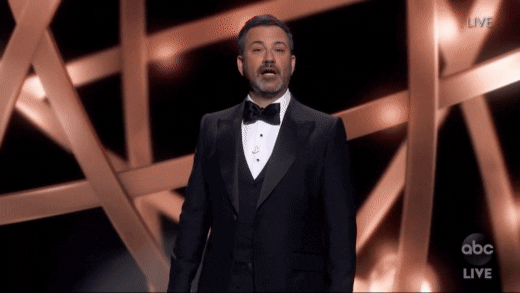
Just play last year’s tape.
Since there was no one in the audience to laugh at Jimmy Kimmel’s opening monologue, the editors inserted clips of celebrities laughing from Emmys past. It wasn’t the funniest joke in the world, but it did get us thinking about incorporating old footage. Nearly every organizer has pictures and videos of their past events. And oftentimes we think of using this footage for at the end of the event, as a recap. But for virtual events — all of that content, all that media from the past, it can all be used upfront as ice-breakers and marketing. Because everyone loves a good throwback Thursday.
A DJ can really keep things moving.
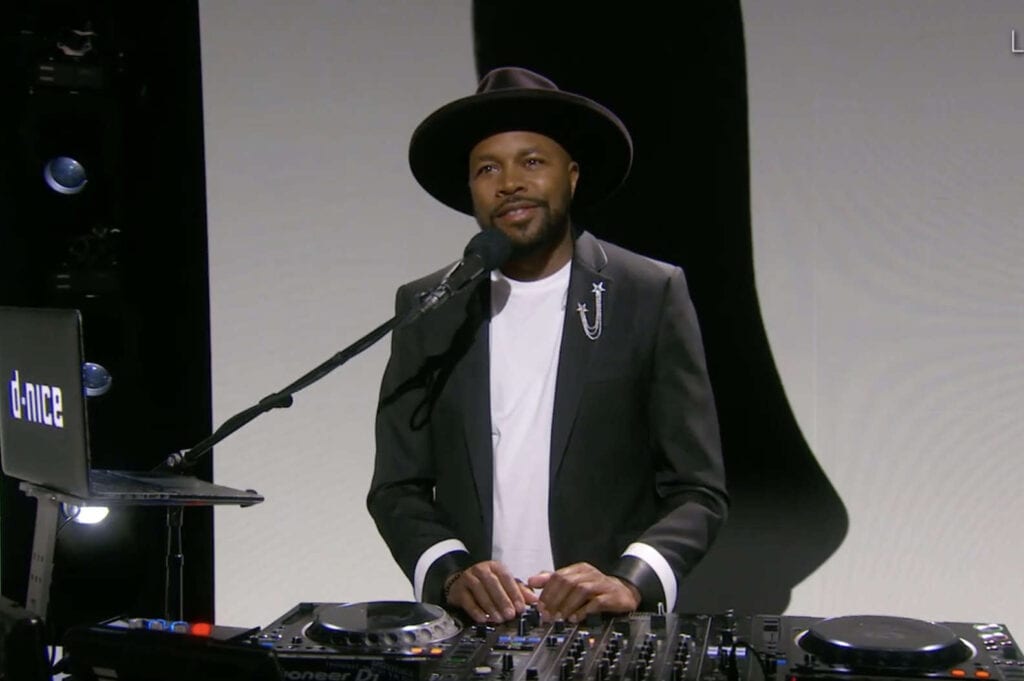
The Emmys also brought in DJ D-Nice (known most recently for creating Club Quarantine), ensuring that if all else fails, the virtual event would have good tunes throughout. The way we see it, bringing in a DJ is just a good idea all around. They can fill space when switching between live feeds (again, the Emmys had a 130). Or introduce speakers with theme songs. And even encourage people to just turn up the music and take a much needed break. Clean the dishes. Play with the dog. Clean the dog. Events can be about escape, resetting, finding a new head space. Music does all of those things.
Cameos from outer space (literally and figuratively)
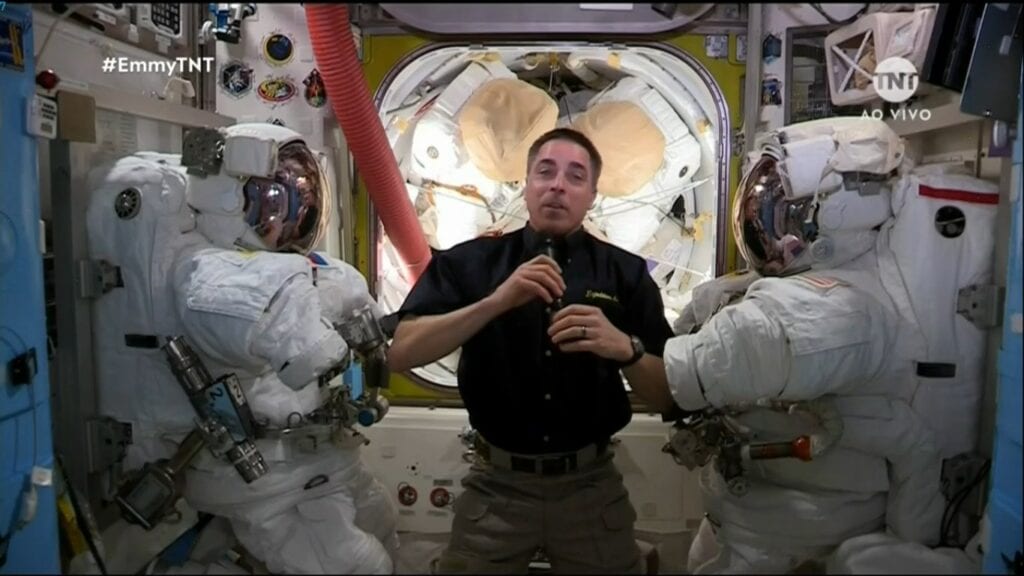
This year’s Emmys also brought in a quick “hello” all the way from the International Space Station. The space cameo was obviously super interesting to look at (most floating humans are), but it also showed the immense reach of virtual events. If there was any speaker that seemed out of reach to bring to your event, just ask yourself… Do they have the internet? If yes. Then it can happen at a virtual event. And in reality, you don’t have to bring people from outer space either, a good virtual cameo is just about helping people feel connected around the world.
Some advanced virtual event techniques that actually pay off…Professional production, multiple stages, and better talking heads
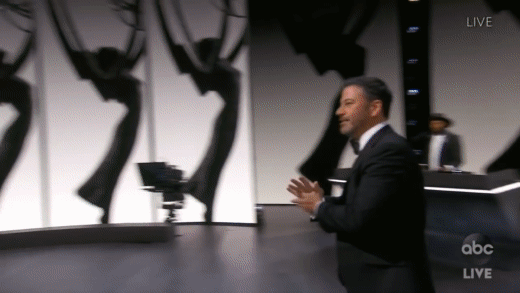
Bringing in professional production people.
We’re all new to virtual events, and it can be unclear what organizers should buy from production teams. Here’s a brief look at how professional production helped this year’s Emmys…
- Every nominee received a hi-res streaming kit with a camera and a laptop and a lighting device. Viewers at home got clear, high quality, non glitchy experiences.
- All the audio was mixed at the right volume. No loud noises or struggling to hear people talk.
- There were plenty of digital production tricks that made the stage more interesting (more detail on this later).
Basically, organizers should know that all the things that make in person events feel high quality — professional production can reproduce in the virtual world.
The private stage.
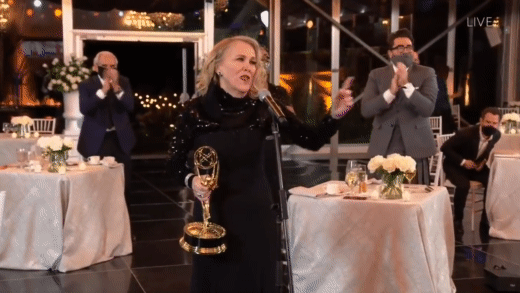
Schitts Creek, and it’s unprecedented 9 wins for a comedy series, got a lot of use out of their private stage. Not only did it have a studio mic and professional camera dolly, all the nominees and their loved ones got to be on screen at the same time. And it made us realize that just having more than one person in the webcam frame makes the presentation seem more interesting. There’s safety questions to consider, but if you have presenters that work together, live together, or are in some way podded together, asking them if they want to host a virtual stage may liven up your event. Especially if they plan on winning 9 Emmys.
Put the television on stage.
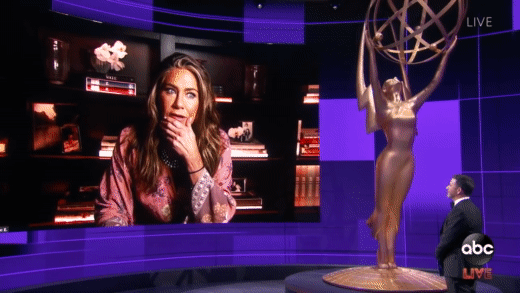
The Emmys also did a neat trick where Jimmy Kimmel called Jennifer Anniston (who was at home), and broadcasted both feeds as if they were on the same stage. Visually it created a vibe that felt more realistic than seeing two talking heads side by side. It also gave viewers just one stream to look at. If you’ve been on a big zoom, with everyone talking, it can be unclear where to look. Directing attention to one stream at a time will make the event feel more real. And that’s what it’s all about.
It can be done.
This year’s Emmys weren’t perfect, but with some small (and big) production investments, and lots of organization, they made it happen. And that’s the most important lesson here. It can be done. An all live, all virtual event, is attainable on any scale. On any budget. As long as you have a plan.
